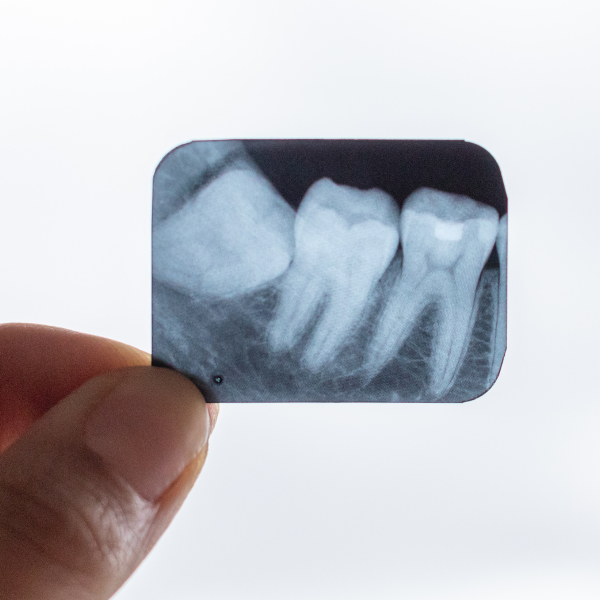Wisdom Tooth Extractions Near You
Your wisdom teeth are located at the very back of your oral cavity, with two erupting on two, and two on the bottom. For most patients, they emerge between the ages of 17 and 25, but everyone’s situation is different.
Extracting teeth is a routine procedure that can help create additional space in your smile while preventing discomfort and grinding. If your dentist has recommended this treatment, it’s important to discuss it with them promptly. They will provide detailed information about the procedure to ensure you feel fully prepared.
Why Do
I Need to Remove My Wisdom Teeth?
Many individuals undergo the removal of one or two wisdom teeth at some point in their lives. In rare cases, some people may not require extraction either because their wisdom teeth fit comfortably in their mouth or simply do not have them.
That said, if you do need to have these teeth taken out, it can be due to any of the following reasons:
- Impaction
- An overcrowded smile
- Getting ready for orthodontic care
- Decay
- Infection

Your oral health will experience a boost upon the conclusion of this treatment. Not only will any pain or related discomfort be eliminated, but you’ll be at a lower risk of inflammation.
Wisdom tooth extraction in Dacula is a surgical procedure that necessitates consultation with a dental professional before any treatment is initiated. After taking X-rays and assessing your smile, your dentist will discuss your preferences and oral health goals. While general dentists can handle straightforward tooth extractions, wisdom teeth extractions are often more complex. Therefore, you may be referred to an oral surgeon for this procedure.
What the Procedure Involves
- Anesthesia is administered to ensure comfort during the procedure.
- The dentist carefully removes the wisdom tooth, often making a small incision in the gum if necessary. Any bone debris that’s present will be cleared away.
- Stitches will be used to close the incision and keep the site from becoming infected.
- You’ll receive post-operative instructions for managing pain, swelling, and healing. Advil and Tylenol can help, as well as consuming
soft item for the first few days.
Who is a Candidate for Wisdom Tooth Extractions?
Wisdom tooth extractions are often recommended for individuals who experience issues related to the eruption of their third molars, commonly known as wisdom teeth.
Here are common scenarios where a person may be a candidate for wisdom tooth extractions:
- Impacted Wisdom Teeth
- Pain or Discomfort
- Tooth Crowding
- Infection or Gum Disease
- Cyst or Tumor Formation
- Tooth Decay
- Preventive Measures
It’s crucial for individuals experiencing symptoms or potential issues with their wisdom teeth to seek consultation with a dentist or oral surgeon. A comprehensive examination, generally involving dental X-rays, is essential to assess the necessity for wisdom tooth extractions. Early intervention can help prevent complications and support overall oral health.
Looking to Receive Treatment for Wisdom Tooth Extractions Near You?
If you’re considering wisdom tooth extractions, we recommend scheduling a consultation at our dental office. Our skilled team will assess your oral condition, discuss the necessity of wisdom tooth removal, and provide guidance and care throughout the process.
Frequently Asked Questions About Wisdom Teeth Extractions
Why do wisdom teeth need to be extracted?
Wisdom teeth might require extraction due to reasons such as impaction, insufficient space, infection, gum disease, cysts or tumors, and as a preventive measure to forestall potential future problems.
Does wisdom tooth extractions hurt?
The extraction procedure itself is typically performed under local anesthesia, ensuring that the patient does not feel pain during the surgery. After the procedure, some discomfort and swelling are normal, but pain can be managed with prescribed or over-the-counter medications.
At what age should wisdom teeth be extracted?
Wisdom teeth are normally removed during the late teens or early twenties when their roots are not fully developed, simplifying the extraction process. However, extraction may be advised at any age if complications arise.
How long is the recovery period after wisdom tooth extraction?
Initially, recovery usually spans a few days to a week. Patients are instructed to adhere to post-operative care guidelines, which often involve rest, applying ice, taking pain relief medications, and consuming a soft diet. Complete healing, including the closure of the extraction sites, may take a few weeks.
Can I go to work or school after wisdom tooth extraction?
Many individuals can generally return to their usual activities, such as work or school, within a day or two following the extraction. However, it’s recommended to refrain from strenuous activities, heavy lifting, and vigorous exercise during the initial days of recovery.
What are the potential complications of wisdom tooth extraction?
While complications are rare, they can include infection, dry socket (loss of the blood clot that should form after extraction), nerve injury, or excessive bleeding. Following the dentist’s post-operative care instructions helps minimize the risk of complications.



 678-802-1209
678-802-1209 Request Consultation
Request Consultation
